
ICAS Bulletin (online ISSN 2836-3418, print ISSN 2836-340X) is published every other week throughout the year at 1919 M St NW, Suite 310, Washington, DC 20036.
The online version of ICAS Bulletin can be found at chinaus-icas.org/bulletins/.

– On September 17, France recalled its ambassador to Australia after the AUKUS pact extinguished a rival French submarine contract. The French ambassador to the U.S. was also withdrawn with President Macron describing France’s bypassing during the AUKUS negotiation process as a “stab in the back.”
– On September 16, China’s foreign ministry spokesman Zhao Lijian accused the AUKUS pact of “severely damaging regional peace…and intensifying the arms race.” These comments came alongside calls from President Xi for countries around the world to oppose “hegemony and division.”
– On September 15, President Biden announced AUKUS—a new security alliance between the U.S., U.K., and Australia—which will provide nuclear-powered submarine technology to Australia to “improve deterrence across the Indo-Pacific.”
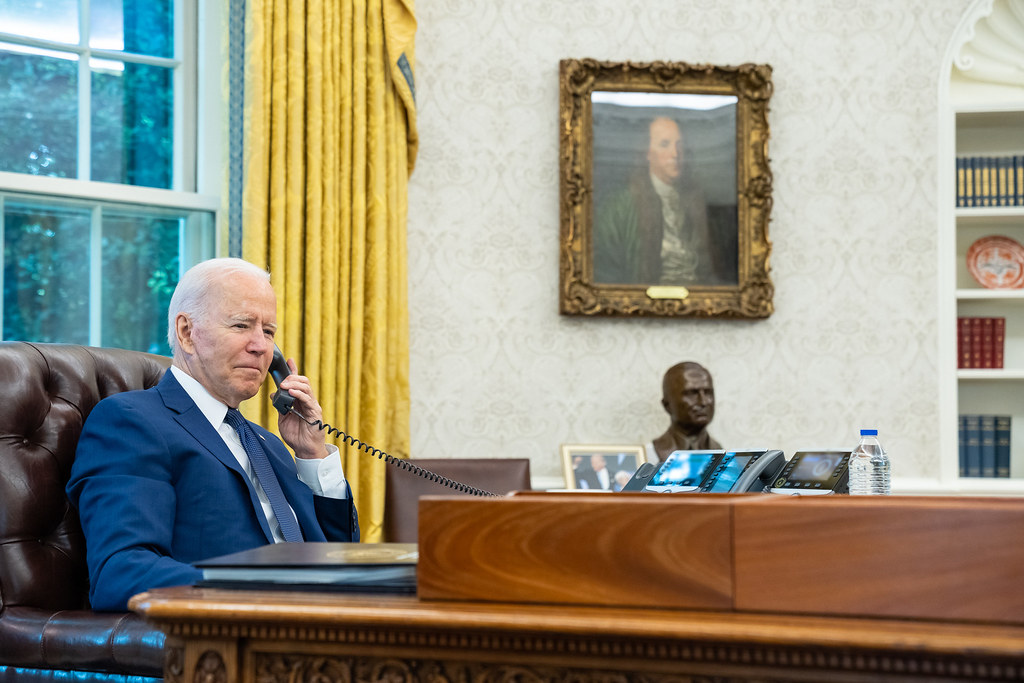
– On September 15, White House Press Secretary Jen Psaki confirmed that President Biden and President Xi discussed ways to continue regular dialogue during their 90-minute phone call on September 10, and reiterated Biden’s position that a leader-to-leader summit is the next logical step to build on the last few months’ high-level meetings.
– On September 14, it was reported that President Xi rejected a suggestion for an in-person summit from Biden during the leaders’ phone call. President Biden and other members of the administration denied these reports.
– Xi was purportedly less abrasive with Biden than in previous conversations, but he characterized recent U.S. rhetoric as a roadblock to improved relations.
– On September 10, President Biden and President Xi spoke on the phone for 90 minutes, only the second conversation between the leaders since Biden took office.
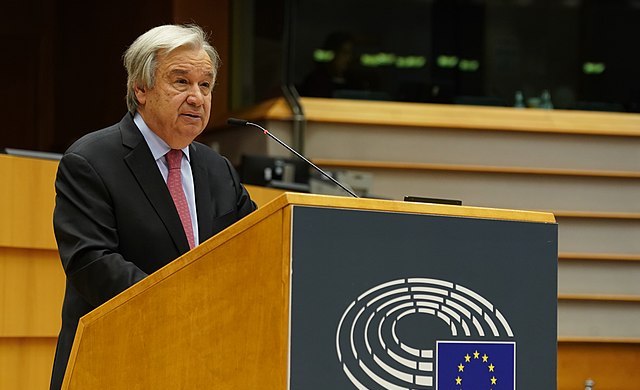
– On September 21, President Biden and President Xi both spoke at the opening of the UN General Assembly. Though both leaders extolled the value of multilateralism, Biden issued a defense of the “democratic world… everywhere” against “authoritarianism” while Xi argued that the “world is big enough to accommodate…development and progress of all countries.”
– On September 20, UN Secretary-General António Guterres urged the U.S. and China to repair their “completely dysfunctional” relationship arguing that U.S.-China cooperation is vital to confronting contemporary global challenges like climate change.
– On September 17, a paper by Zhao Bingfeng of Beijing Intelli Consulting argued that China ought to integrate further into the global economy to avoid getting boxed out of a U.S.-led economic order.
– On September 16, China submitted an application to join the Comprehensive and Progressive Agreement for Trans-Pacific Partnership (CPTPP) in a move to increase economic cooperation with its Pacific neighbors despite diplomatic and structural hurdles to its inclusion.
– On September 15, European Commission President Ursula von der Leyen announced an EU infrastructure investment network called ‘Global Gateway’ to compete with China’s Belt and Road Initiative. Von der Leyen contrasted the EU’s démarche with China’s saying it will create “links and not dependencies.”
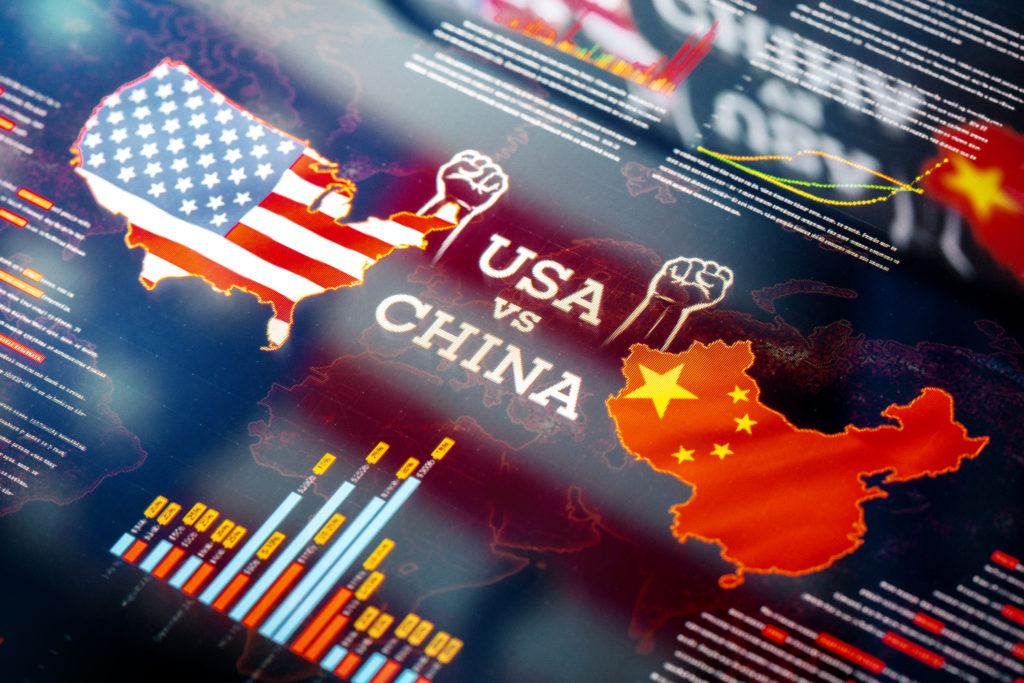
– On September 20, the U.S. Securities and Exchange Commission issued a warning to those looking to invest in U.S.-listed companies with Chinese contractors, known as variable interest entities (VIEs).
– On September 20, a Bain & Company report showed that U.S.-China trade competition over the past five years led to a 96% drop in tech sector FDI.
– On September 16, reports revealed that the World Bank canceled its 2018 flagship report on the global business environments after its staff were pressured by China to alter data that negatively affected its ranking.
– On September 9, Microsoft President Brad Smith argued that the U.S. and China must foster a working relationship on issues of trade and technology to bring “greater clarity and more stability” to global markets.
– On September 8, Jeremy Pelter of the Bureau of Industry and Security testified before the US-China Economic and Security Review Commission (USCC) and reported that punitive measures by the Department of Commerce for the sale of sensitive technologies to Chinese firms increased drastically from 2020 to 2021.

– On September 18, it was reported that the upcoming September 24 meeting of the Quad will likely focus on furthering joint infrastructure initiatives to counter China’s Belt and Road Initiative in the Indo-Pacific.
– On September 16, Secretaries Blinken and Austin hosted their Australian ministerial counterparts in Washington. The consultations led to a joint statement reaffirming both states’ commitment to a “rules-based international order” in the Indo-Pacific, particularly in the South China Sea.
– On September 14, President Biden announced that the U.S. would host a summit of the Quad security pact in Washington.
“State Department Plans ‘China House’ to Counter Beijing,” Foreign Policy, September 21 [Paywall]
“A Chinese Real Estate Company Is Walloping Your Stocks. Here’s Why,” NPR, September 20
“Bank of America Cuts China’s Growth Forecasts Up to 2023,” Bloomberg, September 20 [Paywall]
“Blinken deletes tweet saying US would ‘stand with people of Hong Kong’, posts watered-down version,” South China Morning Post, September 17 [Paywall]
“Federal Judge Acquits Professor Accused of Hiding China Ties,” The Wall Street Journal, September 9 [Paywall]
“In 2 different meetings about Taliban, China and US show divergent strategies,” South China Morning Post, September 9 [Paywall]
“Incendiary Essay Ignites Guessing Over Xi’s Plans for China,” The New York Times, September 9 [Paywall]
“Pro-China social media campaign hits new countries, blames U.S. for COVID,” Reuters, September 9 [Paywall]
September 14 hosted by Wilson Center
September 15 hosted by Carnegie Endowment
September 16 hosted by Wilson Center
September 16 hosted by Center for New American Security
September 19 hosted by Carnegie Endowment
September 22 hosted by Stimson Center
September 22 hosted by SupChina
September 23 hosted by Center for Strategic & International Studies
September 29 hosted by Project 2049 Institute
September 27 hosted by Center for Strategic & International Studies
October 12 hosted by National Bureau of Asian Research
Tuesday, September 28, 2021
10:00am – 11:45am EDT
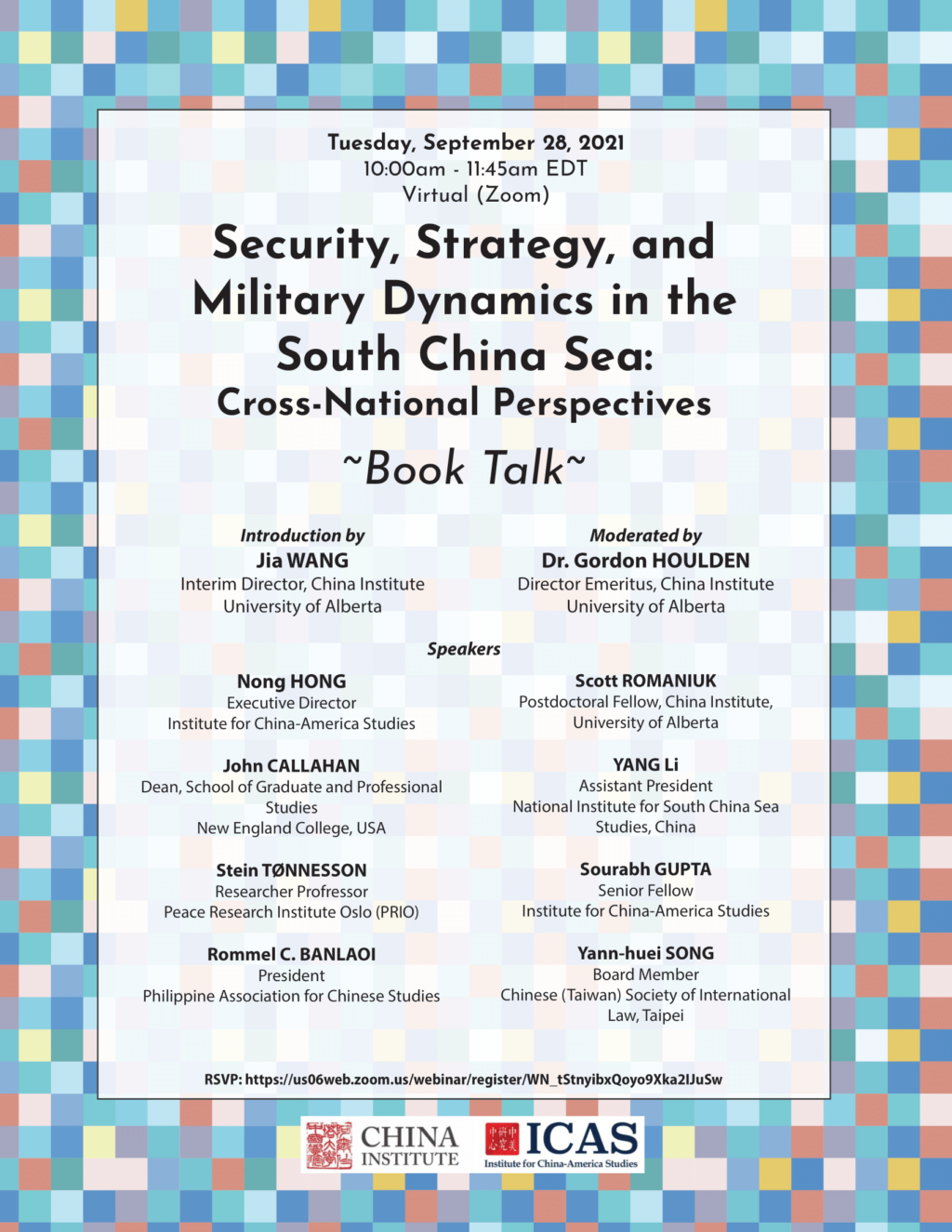
Join us for a conversation on a new book on the South China Sea, bringing together international experts who provide fresh perspectives on geopolitical concerns in the great region.
This comprehensive volume brings together the expertise and knowledge of more than a dozen academics and professionals, all of whom are leading experts in their respective areas. Engaging with individual states and core themes, this book collectively presents a robust and comprehensive outlook on the current geography of security and potential conflict in the South China Sea.
See this page for more information on the panel and click here if you would like to purchase the book.
by Jessica L. Martin
September 20, 2021
Despite their stark disagreements in outlook and methodology for U.S. domestic and foreign policy development, one overlap thus far between the presidential administrations of Donald Trump and Joe Biden is their U.S. policy regarding Taiwan—especially the strategy of transiting through the international waters of the Taiwan Strait.
…While President Biden and his team stated early on that they are willing to work with Beijing—a warmer approach than former President Trump and his team held regarding China—the new leaders of the United States have also made it clear through both their actions and their words that they do not plan to simply revert back to Obama-era activity.
Is there anything remarkable about the new administration’s decision to persist with this Trump-era pro-Taiwan policy? Could this continuation of unilateral maritime transits through the Taiwan Strait, and the subsequent dismissals of warnings and similar actions from Beijing over the matter, be an indication of the Biden administration’s overall China policy that is yet to be publicly formalized?…
by Nate Fischler
September 21, 2021
Chinese Foreign Minister Wang Yi recently concluded a visit to Southeast Asia on the heels of US Vice President Kamala Harris’s trip to the region, including high-level meetings in Hanoi for both. Harris is the first sitting US Vice President to visit Vietnam. Wang’s objectives were to help maintain Vietnam’s official neutrality and reinforce the shared ideological perspectives of the two countries while also giving the appearance of a unified view towards resolving territorial disputes by suggesting that neither country should unilaterally escalate tensions. In line with a broader Chinese effort to wedge US alliances in the region (and US efforts to stoke concern in China by wooing its neighbors), while Vietnam is not a US ally, maintaining the status quo of Vietnamese neutrality is a crucial strategic objective for China…
On Friday, September 17, Executive Director Dr. Nong Hong discussed AUKUS and the current environment of the Asia-Pacific region on RT America’s In Question.
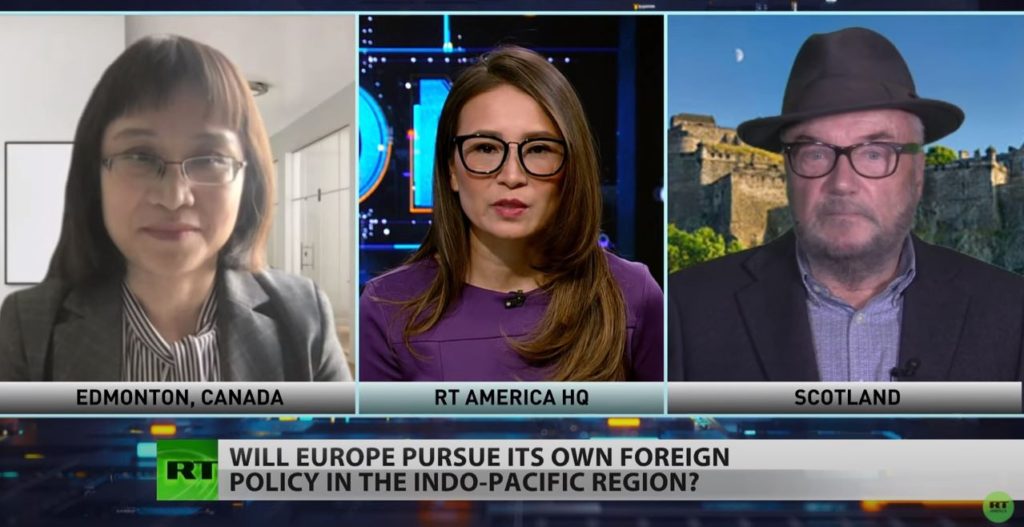
On Thursday, September 16, Senior Fellow Sourabh Gupta discussed the AUKUS Alliance and the decision to sell Australia nuclear submarines on RT America’s News with Rick Sanchez.

On Thursday, September 16, Senior Fellow Sourabh Gupta was quoted by South China Morning Post on China’s application to join the CPTPP.
On Sunday, September 12, Senior Fellow Sourabh Gupta was quoted by South China Morning Post on the ‘toxic rhetoric’ in China-Australia ties.
On Friday, September 10, Senior Fellow Sourabh Gupta was interviewed by Xinhua on how the U.S. has changed politically and as a society in the 20 years since 9/11.

The Institute for China-America Studies is an independent nonprofit, nonpartisan research organization dedicated to strengthening the understanding of U.S.-China relations through expert analysis and practical policy solutions.
1919 M St. NW Suite 310,
Washington, DC 20036
icas@chinaus-icas.org
(202) 968-0595
© 2025 INSTITUTE FOR CHINA-AMERICA STUDIES. ALL RIGHTS RESERVED.